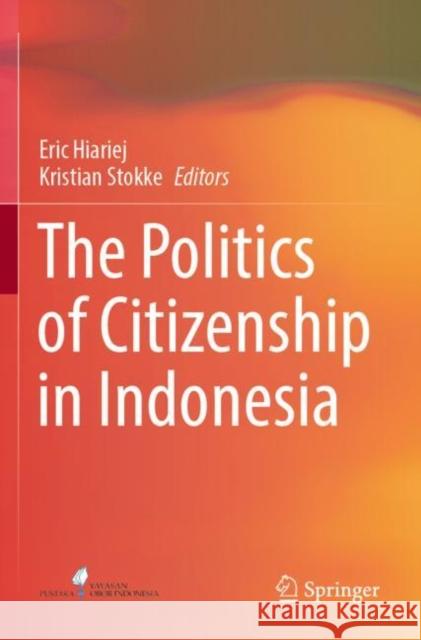The Politics of Citizenship in Indonesia » książka
The Politics of Citizenship in Indonesia
ISBN-13: 9789811679575 / Angielski / Miękka / 2023 / 290 str.
The Politics of Citizenship in Indonesia
ISBN-13: 9789811679575 / Angielski / Miękka / 2023 / 290 str.
(netto: 460,04 VAT: 5%)
Najniższa cena z 30 dni: 462,63
ok. 22 dni roboczych
Dostawa w 2026 r.
Darmowa dostawa!
This book highlights the gains that a citizenship approach offers to the study of democracy in Indonesia, demonstrating that the struggle for citizenship and the historical development of democracy in the country are closely interwoven. The book arises from a research agenda aiming to help Indonesia’s democracy activists by unpacking citizenship as it is produced and practiced through movements against injustice, taking the shape of struggles by people at grassroots levels for cultural recognition, social and economic injustice, and popular representation. Such struggles in Indonesia have engaged with the state through both discursive and non-discursive processes. The authors show that while the state is the common focal point, these struggles are fragmented across different sectors and subject positions. The authors thus propose that developing chains of solidarity is highly important to motivating a democracy that not only has sovereign control over public affairs, but also robust channels and organisations for political representation. In advocating the development of transformative agendas, organisations, and strategies as an important need, and an enduring challenge, for the realization of citizenship, this book is timely and relevant to the study of contemporary Indonesia's socio-political landscape. It is relevant to students and scholars in political science, anthropology, sociology, human geography and development studies.
This book highlights the gains that a citizenship approach offers to the study of democracy in Indonesia, demonstrating that the struggle for citizenship and the historical development of democracy in the country are closely interwoven. The book arises from a research agenda aiming to help Indonesia’s democracy activists by unpacking citizenship as it is produced and practiced through movements against injustice, taking the shape of struggles by people at grassroots levels for cultural recognition, social and economic injustice, and popular representation. Such struggles in Indonesia have engaged with the state through both discursive and non-discursive processes. The authors show that while the state is the common focal point, these struggles are fragmented across different sectors and subject positions. The authors thus propose that developing chains of solidarity is highly important to motivating a democracy that not only has sovereign control over public affairs, but also robust channels and organisations for political representation. In advocating the development of transformative agendas, organisations, and strategies as an important need, and an enduring challenge, for the realization of citizenship, this book is timely and relevant to the study of contemporary Indonesia's socio-political landscape. It is relevant to students and scholars in political science, anthropology, sociology, human geography and development studies.











